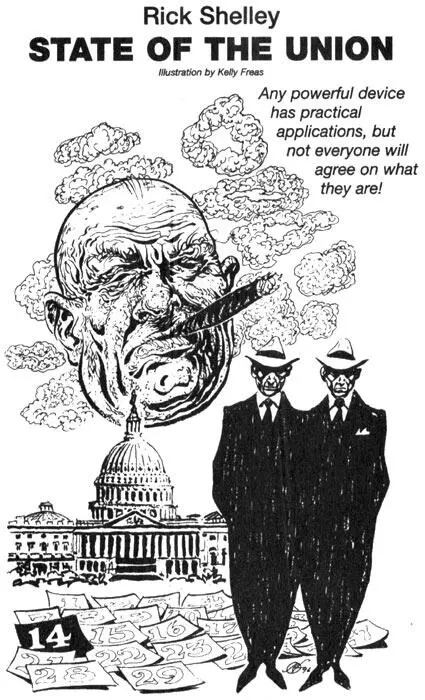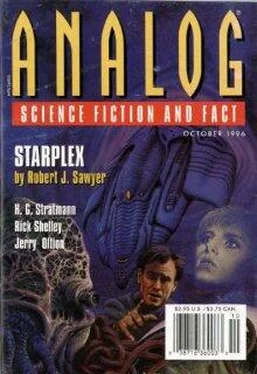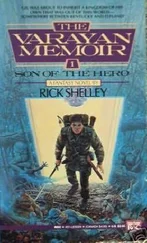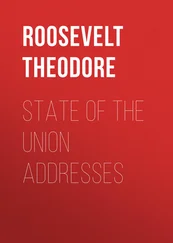Rick Shelley - State of the Union
Здесь есть возможность читать онлайн «Rick Shelley - State of the Union» весь текст электронной книги совершенно бесплатно (целиком полную версию без сокращений). В некоторых случаях можно слушать аудио, скачать через торрент в формате fb2 и присутствует краткое содержание. Год выпуска: 1996, Издательство: Dell Magazines, Жанр: Фантастика и фэнтези, на английском языке. Описание произведения, (предисловие) а так же отзывы посетителей доступны на портале библиотеки ЛибКат.
- Название:State of the Union
- Автор:
- Издательство:Dell Magazines
- Жанр:
- Год:1996
- ISBN:нет данных
- Рейтинг книги:5 / 5. Голосов: 1
-
Избранное:Добавить в избранное
- Отзывы:
-
Ваша оценка:
- 100
- 1
- 2
- 3
- 4
- 5
State of the Union: краткое содержание, описание и аннотация
Предлагаем к чтению аннотацию, описание, краткое содержание или предисловие (зависит от того, что написал сам автор книги «State of the Union»). Если вы не нашли необходимую информацию о книге — напишите в комментариях, мы постараемся отыскать её.
State of the Union — читать онлайн бесплатно полную книгу (весь текст) целиком
Ниже представлен текст книги, разбитый по страницам. Система сохранения места последней прочитанной страницы, позволяет с удобством читать онлайн бесплатно книгу «State of the Union», без необходимости каждый раз заново искать на чём Вы остановились. Поставьте закладку, и сможете в любой момент перейти на страницу, на которой закончили чтение.
Интервал:
Закладка:
State of the Union
by Rick Shelley

The Senate hearing room was packed with reporters. It was a slow news day. Even the prospect of listening to a mad scientist testify before the organized crime committee was welcome.
At the moment, only one member of that committee was missing from the chamber. Since the missing man was Josiah Hitch, the ranking minority member, the session had not yet been formally opened even though everyone else had been in place for twenty minutes. There was a noisy buzz in the room as reporters talked about whatever they had to talk about. At the witness table, a single man, obviously still on the sunny side of forty, sat waiting patiently. Part of the twitter among the reporters was because the witness had come in without even one attorney. In Washington, that was news almost on the level of Man Bites Dog.
Josiah Hitch eventually arrived, scowling as always, and muttered pro forma apologies for being “unavoidably detained.” Both the scowl and the apology were garbled by the Churchill cigar in his mouth. His colleagues were too polite to snicker. Everyone knew what had detained Hitch, what always detained him. He spent so much time in men’s rooms that his less sympathetic colleagues had started talking about “going to the hitch.”
Chairman Robert Tavish banged the gavel. As soon as the daily formula was complete, Tavish introduced the witness and Dr. William G. Wilson, Jr. was sworn in.
“Mister Chairman,” Hitch interrupted. “Before we go any farther, I would like to make a statement.” He used his cigar as if it were a conductor’s baton, gesturing wildly with it, making certain that thick clouds of smoke were generously distributed. During the previous Congress, while the Republicans were still in control of both houses, the ban on smoking had been lifted. Hitch had ignored it even while it was in effect. He represented a tobacco state. Vigorously.
Tavish quickly suppressed the instinctive frown and nodded. “The chair recognizes the deputy chair.”
“In all my many years in public life, I have never, never, seen such an incredible and unconscionable waste of time and taxpayers’ money,” Hitch said, fixing Dr. Wilson with his most malevolent stare and poking his cigar toward the witness table. Wilson had no business sitting there looking so smug and handsome and young. “That is quite a statement, since we all know that this body has witnessed some extraordinary wastes of both.” He paused to make sure that the reporters were at least making a pretense of listening to him. He saw red lights on three video cameras. That was enough to let him continue. “Dr. Wilson, you have the temerity, the absolute gall, to come before this august body and claim that you have single‑handedly wiped out major organized crime in this country?”
Wilson’s smile showed more than confidence. It was the smugness of a man who knew without checking that his fly was securely zipped and all was well with the world. The smile was the result of his best efforts at moderation. Left to his natural inclinations, he would have laughed his head off. He was not the least bit nervous about this hearing, or the ranking minority senator.
“Not exactly, Senator,” Wilson said. “I did not, personally, wipe out all of major organized crime in this country. But,”—he continued when he saw that Hitch was about to launch another oration—“I am responsible for it being wiped out. I created the mechanism and made it possible.”
“I fail to see the distinction,” Hitch said.
“I came here to explain that,” Wilson pointed out. “The committee has already seen much of my data. That was the reason for the hasty scheduling of these hearings, despite the fact that some individuals obviously feel that I am unhinged.”
Chairman Tavish cleared his throat. “That is true—I mean, that these hearings were scheduled so quickly because of the data we have seen, and because of the obvious evidence that major organized crime does seem to have virtually disappeared over the past few weeks. And I fear that this is getting beyond simply making a statement.” He glanced at Hitch. Hitch’s scowl deepened. There was more he wanted to say, about the idiocy of wasting time with this witness’s claim that he had invented a time machine, but the ranking Republican member of the committee nodded his acceptance of the chair’s observation.
“Dr. Wilson, I believe you have an opening statement to read?” Tavish said, turning his attention to the witness.
“I do, sir,” Wilson said.
“Go ahead, Doctor.”
“Thank you.” Wilson positioned the text of his statement directly in front of him, and started to read.
“My name is William G. Wilson, Jr. I have dual doctorates, in physics and mathematics. I am currently a tenured member of the physics faculty of the University of Chicago.” Wilson spent just a few minutes establishing his professional bona fides, then looked up from his text.
“Mister Chairman, this next bit is not in the prepared statement I submitted to you, but 1 can’t help but interject it, with your permission.”
Tavish nodded, mostly because he hoped that whatever Wilson had to say would annoy Hitch more than it would him.
“Over the past several decades,” Wilson said, letting his gaze travel along the arc of faces behind the raised bench at the head of the room, “it has become increasingly difficult for scientists to obtain proper funding for any research, even the most pressing and—potentially—most rewarding. Success in scientific research has become more a function of a researcher’s ability to raise funds than his scientific acumen. That has been particularly true since the midterm elections in ’94.” Wilson paused. There was considerably more he wanted to say, but there would be time, later, for the rest. Deeds were ever so much more impressive than words.
“We have to be open‑minded about obtaining research grants. A scientist who wants to stay in business has to be willing to accept offers, even if there are disagreeable strings tied to the money.” He hesitated again, thinking that there had often been disagreeable strings attached even back when the money had come primarily from congress. Then he looked to the committee chairman and said, “I’ll return to my prepared statement now.”
The primary thrust of my research has always been time. On a theoretical level, that needs no more than computer, paper and pencils, and a brain. I have, of course, made use of whatever experimental data others have managed to collect, measuring the differing passage of time at different distances from the center of Earth, and at different velocities, and so forth, using those data for my calculations.
Four years ago I published a paper which suggested, among other things, that it might be feasible to build a working time machine—given rather liberal funding. I was unable to obtain that funding through any of the usual channels. Those people responsible for judging the merits of such requests saw the words “Time Machine” and immediately freaked out without bothering to properly evaluate the proposal or submit it to peer review. It was impossible, it was impractical, and anyhow, there were all of those nasty paradoxes we’ve been reading about since H.G. Wells.
It wasn’t long before the department chair suggested that, tenure or not, it might be wise if I quit giving the university such a black eye. Research funding for my colleagues might be adversely affected if people thought that there was a certifiable lunatic on the faculty. I had little choice, actually. I continued my theoretical work, but decided that unless I won a very large lottery prize, I would never get the chance to see if my device could actually be built.
Читать дальшеИнтервал:
Закладка:
Похожие книги на «State of the Union»
Представляем Вашему вниманию похожие книги на «State of the Union» списком для выбора. Мы отобрали схожую по названию и смыслу литературу в надежде предоставить читателям больше вариантов отыскать новые, интересные, ещё непрочитанные произведения.
Обсуждение, отзывы о книге «State of the Union» и просто собственные мнения читателей. Оставьте ваши комментарии, напишите, что Вы думаете о произведении, его смысле или главных героях. Укажите что конкретно понравилось, а что нет, и почему Вы так считаете.












